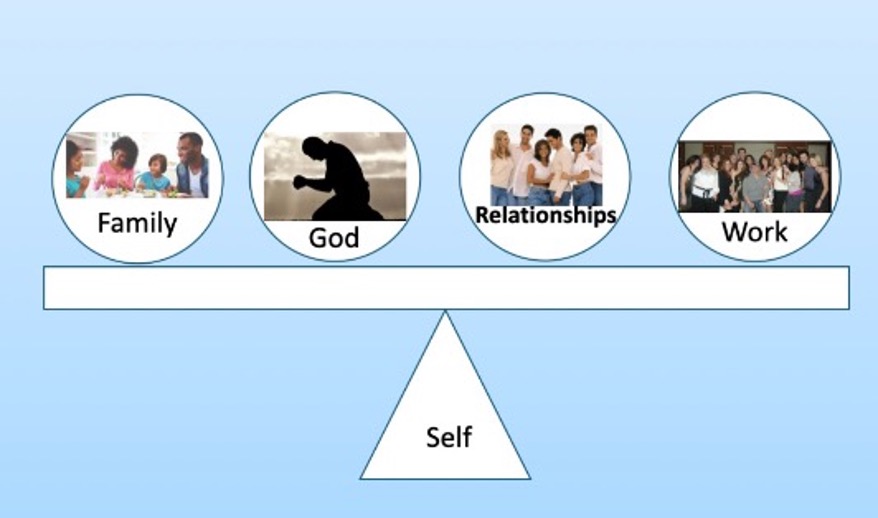
by Dr Gene | Feb 18, 2025 | Superfood
If you are searching for a “superfood,” you may not have to search much further than the mighty tomato. Just look at this list of powerful nutrients in the tomato and their far-reaching health benefits:
Tomatoes contain a high concentration of lycopene, a powerful antioxidant. Lycopene is known to lower the risk of certain cancers, such as breast, lung, and prostate cancer.
Tomatoes are high in Vitamin A, which aids in eye health, helping to protect against night blindness and age-related decline. It also helps lower the risk of some cancers, supports the immune system, supports bone health, and promotes healthy growth.
Tomatoes are high in the powerful antioxidant Vitamin C, which helps combat aging, reduce the risk of chronic disease, manage blood pressure, aid in iron absorption, reduce the risk of iron deficiency, boost the immune system, and protect against age-related memory decline.
Other benefits of tomatoes:
- Promote gut health by helping decrease inflammation and improving the gut microbiome.
- When combined with olive oil can help to lower excess cholesterol.
- It is low in calories and can help with weight maintenance.
- Promotes heart health and helps to reduce the risk of cardiac disease.
Tomatoes are common ingredients in Mediterranean Food, such as Italian and Greek cooking. The mighty tomato may be one of the important pieces of the puzzle that help explain why the Mediterranean Diet is so amazing for cardiac health, overall health, and longevity.

by Dr Gene | Feb 13, 2025 | Health
In the realm of healthy eating, the Mediterranean Diet is a shining star. With its tantalizing flavors and rich history, this diet has garnered widespread recognition for its numerous health benefits. Let’s explore what makes the Mediterranean Diet so special and why it has won the hearts and taste buds of millions.
Quality over quantity is a fundamental Italian principle when it comes to food. By prioritising fresh, gih-quality ingredients, Italians ensure that every meal is nutritious and delicious.
A Journey Through Time: The Mediterranean Diet is not just a diet; it’s a way of life rooted in centuries-old traditions. Its origins can be traced back to the Mediterranean region, where people have been savoring its delights for generations. The diet was first brought to international attention in the 1960s by researchers who noticed that people living in the Mediterranean region had lower rates of heart disease than other Western populations.
Key Components: At the heart of the Mediterranean Diet are nutrient-rich foods that promote overall well-being:
- Fruits and Vegetables: Abundant in vitamins, minerals, and antioxidants.
- Olive Oil: A healthy source of monounsaturated fats.
- Fish: Rich in omega-3 fatty acids, promoting heart health.
- Nuts and Seeds: Packed with essential nutrients.
- Whole Grains: Fiber-rich for digestive health.
- Lean Proteins: Like poultry and legumes for balanced nutrition.
- Moderate Wine Consumption: In some variations, for antioxidant benefits.
Health Benefits: Embracing the Mediterranean Diet can lead to numerous health advantages, including:
- Heart Health: Reduced risk of heart disease and stroke.
- Weight Management: Support for healthy weight maintenance.
- Improved Cognitive Function: Lower risk of cognitive decline.
- Diabetes Management: Better blood sugar control.
- Cancer Prevention: Reduced risk of certain cancers.
- Longevity: Linked to a longer and healthier life.
Wide Acceptance: The Mediterranean Diet has gained global acclaim and is celebrated by health-conscious individuals and experts alike. Its balanced approach to eating, emphasis on fresh ingredients, and delicious flavors make it an appealing choice for those looking to enhance their well-being through their diet.
In conclusion, the Mediterranean Diet is more than just a culinary choice; it’s a lifestyle that offers a myriad of health benefits. With its rich history and widespread acceptance, it’s no wonder that this diet continues to captivate the hearts and palates of people worldwide. So, why not embark on a journey to better health and happiness through the Mediterranean Diet? Your taste buds and your body will thank you for it!

by Dr Gene | Feb 10, 2025 | Sexual Health
I once had a professor in college who made a bold but fascinating statement: The three most powerful forces that have guided humanity, for better or worse, are money, power, and sex. It’s a provocative claim, yet not without merit. These three forces have been called the “dark triad” of the human psyche—three primal drives that, throughout history, have influenced the rise and fall of civilizations, shaped laws, and ignited revolutions. Among them, sex holds a unique and universal place. As Hugh Hefner once said, “Sex is the driving force on the planet. We should embrace it and not see it as the enemy.”
Sex is more than a biological imperative for procreation; it’s a force that shapes relationships, influences our health and well-being, and plays a pivotal role in human connection. Let’s delve into the interplay of sex, relationships, health, and wellness and unpack the powerful role sex plays in our lives.
The Biology of Sex: A Driving Force Across Time
Sex has been central to human existence from the earliest recorded history, through religious texts, legal systems, and cultural traditions. Biologically, sex is the mechanism by which species reproduce, ensuring the survival of life on Earth. The chemical processes involved in sexual attraction and bonding are potent. Hormones such as dopamine, oxytocin, and serotonin flood the brain during moments of intimacy, creating powerful emotional responses and driving human behavior.
Yet biology alone doesn’t explain the complexity of sex. Societal laws, norms, and values have long sought to regulate sexual behavior. Why? Because while sex is a personal and intimate act, it also has far-reaching social consequences. Marriage, family structures, and societal stability have all been closely tied to how sex is expressed and managed.
Sex and Relationships: The Glue That Binds—or Breaks?
In the context of relationships, sex plays a critical role in forming and maintaining emotional bonds. During the initial stages of a relationship, sexual attraction is often intense. This period, fueled by dopamine and adrenaline, is sometimes referred to as the “honeymoon phase.” Over time, however, sexual dynamics in relationships can change. Many couples find that as the intensity of early passion wanes, the deeper aspects of emotional connection take precedence.
But what happens when sex diminishes in a relationship? Can a couple thrive without a healthy sexual connection? Experts suggest that while sex isn’t the only component of a successful relationship, it’s a vital one. Intimacy fosters trust, emotional closeness, and mutual satisfaction. Too little sex can lead to frustration, resentment, or emotional distance. Conversely, an overly strong focus on sex—without emotional connection—can cause a relationship to feel shallow or transactional.
How Much Sex Is Healthy?
There’s no universal answer to how much sex is “normal” or healthy in a relationship—it varies from couple to couple. The key, according to relationship experts, is mutual satisfaction. When both partners feel their needs are being met, sexual frequency becomes less important. However, when there’s a significant mismatch in desire, it can lead to conflict.
Sexual wellness doesn’t just refer to frequency—it also encompasses quality, communication, and emotional connection. Couples who communicate openly about their sexual desires, preferences, and boundaries tend to have healthier and more satisfying sex lives.
Attraction, Love, and the Brain: What Science Says
Attraction and love are complex experiences influenced by both physiological and psychological factors. When we’re attracted to someone, our brain releases dopamine, the same chemical that’s activated when we experience pleasure. This creates a sense of euphoria and excitement. Oxytocin, often called the “love hormone,” is released during physical intimacy, deepening emotional bonds and trust between partners.
Interestingly, the brain’s response to love and sex can sometimes be at odds. For example, feeling a deep emotional attachment to someone without a strong physical attraction is possible, or vice versa. This disconnect can create tension in relationships, as one partner may prioritize emotional intimacy while the other places greater importance on physical connection.
Medical Help for Sexual Wellness: When Biology and Desire Don’t Align
For some individuals, physiological or hormonal imbalances can affect sexual desire and function. Low libido, erectile dysfunction, and hormonal changes (such as those experienced during menopause or andropause) can impact a person’s ability to engage in or enjoy sex. In such cases, seeking medical help is essential.
Specialized clinics and sexual health professionals can offer treatments ranging from hormone therapy to counseling. For example, testosterone replacement therapy is often used for men experiencing low libido, while hormone replacement therapy (HRT) can help women manage the symptoms of menopause. Additionally, pelvic floor therapy and sexual health counseling can address physical or psychological barriers to intimacy.
The Role of Sex in Established Relationships
Once a relationship is established, the role of sex often shifts. Early in a relationship, sex may be primarily about passion and exploration. Over time, it becomes more about maintaining intimacy, expressing love, and deepening connection.
While there’s a stereotype that men are more interested in the physical aspects of sex and women are more interested in the emotional aspects, research suggests that this is an oversimplification. Both men and women value physical pleasure and emotional connection, though cultural norms may influence how they express these desires.
Sex vs. Love: Understanding the Distinction
One common issue in relationships is the conflation of sex with love. While sex can be an expression of love, the two aren’t synonymous. Love involves emotional intimacy, trust, and a sense of partnership. Sex, on the other hand, is a physical act that may or may not involve emotional connection.
When people confuse sex with love, they may enter into relationships for the wrong reasons or feel disillusioned when the initial passion fades. Healthy relationships require emotional and physical intimacy, but they don’t always develop simultaneously.
Common Issues in Relationships Related to Sex
Several issues can arise in relationships when it comes to sex:
- Mismatched Libidos: When one partner has a higher or lower sex drive than the other, it can lead to frustration and conflict. Open communication and compromise are key to navigating this issue.
- Lack of Communication: Many couples struggle to talk openly about their sexual desires and needs. This can lead to misunderstandings and dissatisfaction.
- Stress and Lifestyle Factors: Stress, fatigue, and busy schedules can negatively impact a couple’s sex life. Prioritizing self-care and intimacy can help.
- Infidelity: When sexual needs aren’t met within a relationship, some individuals may seek fulfillment outside of it. Building trust and maintaining open communication are essential for preventing infidelity.
- Medical Issues: Health problems, such as hormonal imbalances or chronic illnesses, can affect sexual function. Seeking medical advice and support can improve both sexual health and overall well-being.
The Importance of Embracing a Holistic View of Sex, Relationships, and Wellness
Sex is a powerful force that influences human behavior, relationships, and overall wellness. When approached with openness, communication, and mutual respect, it can strengthen emotional bonds and enhance well-being. However, it can become a source of conflict and dissatisfaction when neglected or misunderstood.
By understanding the biological, emotional, and psychological aspects of sex, we can foster healthier relationships and a more balanced approach to wellness. Whether through medical intervention, open dialogue, or simply prioritizing intimacy, embracing the role of sex in our lives is key to nurturing both individual and relational health. After all, as Hugh Hefner suggested, perhaps sex isn’t the enemy—it’s an integral part of what makes us human.

by Dr Gene | Feb 7, 2025 | Health
Knowledge is often described as a treasure, a precious gift that has the potential to transform lives. Yet, as the ancient Chinese philosopher Lao Tzu so wisely pointed out, the journey of a thousand miles begins with a single step. Knowing alone is not enough—it is action that turns knowledge into real-life change. Without that crucial step, even the most profound wisdom remains inert, like an unopened gift. Throughout life, countless treasures of knowledge present themselves, each offering the potential to improve aspects of our lives—whether it be fitness, nutrition, health, or overall well-being. However, one essential ingredient is practice for these treasures to have a real impact. In other words, action.
As a healthcare professional, I have often reflected on the term “practice.” When people hear about a “medical practice” or a “dental practice,” they might imagine doctors and dentists perpetually experimenting, always trying to get it right. In a sense, that is true. Every time I treat a patient, I bring my accumulated knowledge and experience to the encounter. However, no matter how much I know, the essence of practice is action. I can’t help my patients without acting on my knowledge. Practice means consistently applying what I know, learning from each experience, and striving to improve. This approach applies not only to dentistry but also to life. Knowledge, no matter how vast or profound, accomplishes nothing unless it is paired with action.
The principle remains the same when it comes to achieving personal goals—whether they involve weight loss, fitness, or overall wellness. Knowledge provides the foundation, but action is what propels us forward. Imagine knowledge as a tree laden with ornaments, each representing a valuable lesson or insight. Those ornaments may look beautiful from a distance, but they serve no purpose unless we reach out, take them, and put them to use. The process of turning knowledge into action doesn’t have to be overwhelming. In fact, the key to success is simplicity—taking it one step at a time, one action at a time.
Lao Tzu’s wisdom about the thousand-mile journey underscores this truth. Big changes don’t happen overnight. You can’t undo years of unhealthy habits with a single affirmation or one grand resolution. Instead, progress is made through small, consistent steps, each building on the last. It is a gradual process of moving forward, even in the face of setbacks. Life is filled with challenges, and each challenge can seem insurmountable when viewed as a whole. I like to think of these challenges as elephants—huge, daunting, and seemingly impossible to tackle. When faced with such an elephant, the question arises: how do you eat an elephant? As Desmond Tutu famously said, the answer is simple: one bite at a time.
This mindset has served me well throughout my life. Whether the goal was to lose weight, commit to a regular exercise routine, or overcome personal obstacles, the process always began with that first bite. Losing 65 pounds might seem impossible when viewed as a whole, just as starting a four-day-a-week exercise regimen might feel overwhelming. But by breaking the goal down into manageable steps—by focusing on one bite at a time—it becomes achievable.
Getting started is often the hardest part. When we look at the entirety of a task, it can seem too monumental, too vast even to attempt. That’s when the principle of taking one step at a time becomes crucial. Instead of being paralyzed by the size of the elephant, we can focus on just the first bite. With each small action, we gain momentum. The first step leads to the next, and then the next, until progress becomes inevitable. Over time, what once seemed impossible becomes a reality.
Of course, this approach might sound too simple or too straightforward. But that’s exactly the point. Success doesn’t come from grand gestures or complicated strategies. It comes from consistent practice, from the willingness to take small, deliberate steps toward a goal. The journey toward abundant fitness, health, and wellness isn’t about perfection. It’s about persistence. It’s about showing up every day, doing the work, and trusting that each small action brings you closer to your destination.
Practice is the bridge between knowing and becoming. Without it, knowledge remains theoretical, a collection of facts and ideas that never influence real life. With practice, knowledge becomes a powerful tool for transformation. This is true in every aspect of life. Whether you’re aiming to improve your physical health, strengthen relationships, or cultivate a sense of inner peace, the process begins with that first step. You don’t have to have it all figured out from the start. You just have to start.
Throughout this journey, it’s important to remember that setbacks are a natural part of the process. There will be days when progress feels slow or when obstacles seem insurmountable. In those moments, the key is to keep moving forward, even if only in small steps. Each step, no matter how small, is a victory. Each action, no matter how minor, contributes to the larger goal. Over time, these small victories add up, creating lasting change.
Enjoying the journey is just as important as reaching the destination. Life isn’t a race to the finish line; it’s a series of moments, each offering an opportunity to learn, grow, and improve. By embracing the process, by taking pleasure in each step forward, we can find joy in the journey itself. The path to abundant health and wellness isn’t about achieving a perfect state; it’s about living fully, with intention and purpose.
So, as you begin your own thousand-mile journey, remember that the first step is all it takes to set things in motion. The knowledge is already within you. The path is yours to walk. With each step, you move closer to the life you envision. And with each act of practice, you unlock the true potential of the treasure you hold. Enjoy the journey!

by Dr Gene | Feb 4, 2025 | Health
A well-rounded individual isn’t someone who excels at everything but rather someone who has discovered the delicate art of balance across all areas of life. Achieving this balance is essential for peace, happiness, and well-being. While striving for external goals like financial success or personal achievements can drive growth, it’s equally important to cultivate internal peace by appreciating what we have. Finding the right equilibrium—where gratitude meets ambition—can be the key to a fulfilling life.
The final step in my personal journey toward boundless health and wellness was perhaps the most challenging: maintaining balance. It was too easy to become consumed by a single goal, whether it was work, fitness, relationships, or personal development, and lose sight of the broader picture. Life isn’t just one thing; it’s a complex interplay of various elements that need tending. When one area overshadows the rest, imbalance arises, often leading to stress, dissatisfaction, and even illness.
Consider your own life for a moment: How do you spend your time? Where do you direct your mental energy? Who do you interact with most often? These simple reflections can reveal whether your life is in balance or if one aspect dominates your attention to the detriment of others. Achieving balance doesn’t mean giving each area equal time every day but rather ensuring that none is entirely neglected. At different stages of life, some areas naturally take precedence over others—and that’s okay. What matters is keeping all aspects of life in mind.
Spirituality often plays a crucial role in achieving balance for many people. Some believe that God or a higher power should be the central focus, while others find balance by recognizing the divine in every facet of life—in relationships, work, and self-care. Personally, I am continually awed by the harmony of life itself. The human body, for example, is a masterpiece of balance and interconnectedness. Every cell, every process, every nutrient we consume is part of an intricate symphony that sustains us. When we live in balance, we align ourselves with this natural order, fostering a sense of unity with both the world around us and the creator.
Self-love is at the core of balance. Without it, we risk neglecting vital areas of life. Taking care of ourselves—physically, mentally, emotionally, and spiritually—is not selfish; it is necessary for sustaining all other aspects of life. When we nurture ourselves, we can better nurture our families, contribute meaningfully to our work, and maintain healthy relationships. Balance isn’t about sacrificing one area for another but about ensuring that every part of our lives receives the attention it deserves.
However, modern life often presents significant obstacles to achieving balance. Work, in particular, can become all-consuming. I have known many people who commuted long hours to demanding jobs in New York City, leaving them with little time or energy for anything else. Their lives became a cycle of work, eat, sleep, and repeat, with balance relegated to the weekends—if at all. Over time, such an imbalance leads to physical and emotional burnout, strained relationships, and deteriorating health.
On the other end of the spectrum, some families become entirely centered around their children, with parents losing themselves in the process. While children are undoubtedly important, making them the sole focus can leave little room for personal growth, fitness, or nurturing relationships. Without balance, even the most well-intentioned focus can lead to feelings of frustration, exhaustion, and dissatisfaction.
Similarly, it’s possible to become overly fixated on health and fitness. While taking care of our bodies is essential, it shouldn’t come at the expense of everything else. When workouts and dietary routines consume our time and attention, we risk neglecting our loved ones, spiritual well-being, and professional responsibilities. True health is holistic; it encompasses physical fitness and emotional, relational, and spiritual well-being.
Humans are inherently social beings, and balance requires nurturing our connections with others. In the past, people worked and lived in close-knit communities, sharing their talents and passions with those around them. Today, many of us work primarily to sustain our lifestyles, often at the expense of personal fulfillment. Striking a balance means finding work that pays the bills and nourishes the soul. It means dedicating time to recharge through proper rest, alone time, and connection with nature.
Signs of imbalance are often easy to spot, such as working long hours without rest, neglecting spiritual practices, feeling disconnected from loved ones, or ignoring one’s health. If you find yourself constantly stressed, gaining weight, struggling to sleep, or feeling unfulfilled, it might be time to reevaluate your life and seek a better balance. Similarly, if your phone consumes more of your attention than your family, or if you can’t remember the last time you took a walk in the park, these signals show that balance needs to be restored.
It’s important to understand that balance is not a static state; it’s a dynamic process. Life is constantly changing, and our priorities shift accordingly. What remains crucial is our commitment to maintaining balance amidst the changes. By taking care of ourselves, nurturing our relationships, finding joy in our work, and keeping our spiritual connection alive, we can create a life that is both fulfilling and sustainable.
Achieving balance requires mindfulness and intentionality. It might involve setting boundaries at work to protect personal time, prioritizing regular exercise and healthy eating without becoming obsessive, or making time for loved ones despite a busy schedule. It could mean revisiting spiritual practices or simply allowing yourself moments of quiet reflection. Balance is deeply personal, and what works for one person might not work for another. The key is continually assessing and adjusting, ensuring that no part of life is consistently neglected.
Ultimately, balance brings a sense of peace and fulfillment. It allows us to appreciate the present while working toward future goals. It helps us navigate life’s inevitable ups and downs with grace and resilience. When we live in balance, we not only enhance our own well-being but also contribute positively to the lives of those around us. In a world that often pushes us toward extremes, striving for balance can be a radical act of self-care and a powerful path to true wellness.





